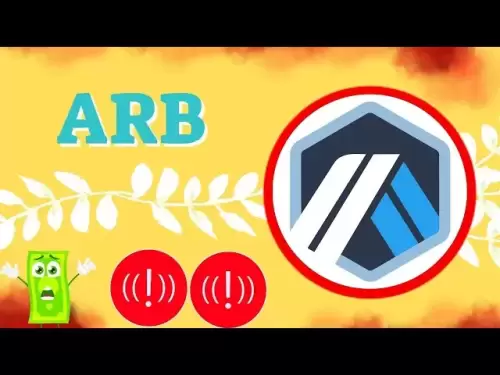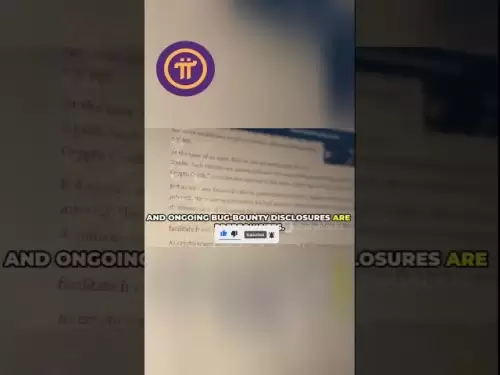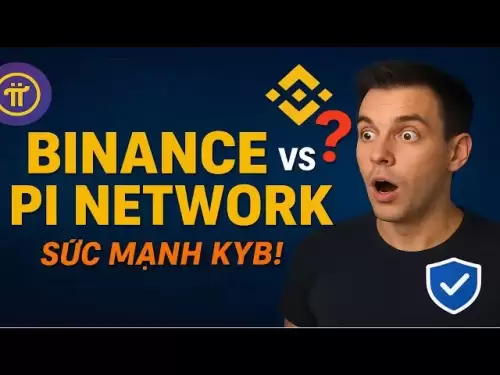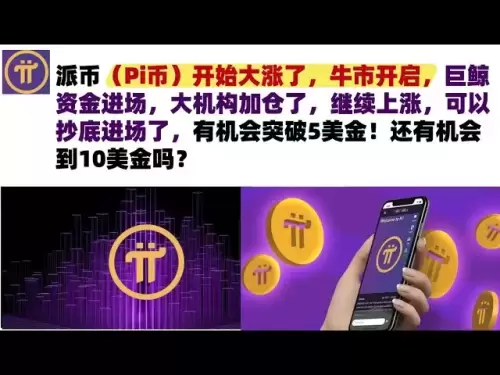-
 Bitcoin
Bitcoin $116700
0.13% -
 Ethereum
Ethereum $4229
5.18% -
 XRP
XRP $3.290
0.28% -
 Tether USDt
Tether USDt $1.000
0.01% -
 BNB
BNB $804.4
1.46% -
 Solana
Solana $181.3
1.92% -
 USDC
USDC $1.000
0.02% -
 Dogecoin
Dogecoin $0.2453
8.11% -
 TRON
TRON $0.3359
-0.82% -
 Cardano
Cardano $0.8187
2.71% -
 Hyperliquid
Hyperliquid $43.56
6.46% -
 Chainlink
Chainlink $21.22
9.48% -
 Stellar
Stellar $0.4533
0.95% -
 Sui
Sui $3.948
2.90% -
 Bitcoin Cash
Bitcoin Cash $571.0
-2.75% -
 Hedera
Hedera $0.2657
1.33% -
 Avalanche
Avalanche $24.32
2.80% -
 Ethena USDe
Ethena USDe $1.001
0.02% -
 Litecoin
Litecoin $122.2
-0.70% -
 Toncoin
Toncoin $3.440
1.95% -
 UNUS SED LEO
UNUS SED LEO $8.978
-0.09% -
 Shiba Inu
Shiba Inu $0.00001385
5.32% -
 Uniswap
Uniswap $10.94
0.24% -
 Polkadot
Polkadot $4.116
3.88% -
 Dai
Dai $1.000
0.00% -
 Pepe
Pepe $0.00001233
5.82% -
 Bitget Token
Bitget Token $4.511
0.53% -
 Cronos
Cronos $0.1572
2.50% -
 Monero
Monero $272.0
-1.82% -
 Ethena
Ethena $0.7563
17.60%
How to reduce fees when trading SOL?
To minimize Solana transaction fees, time trades during off-peak hours, break large transactions into smaller ones, and use efficient wallets and DEX aggregators.
Mar 28, 2025 at 02:28 am
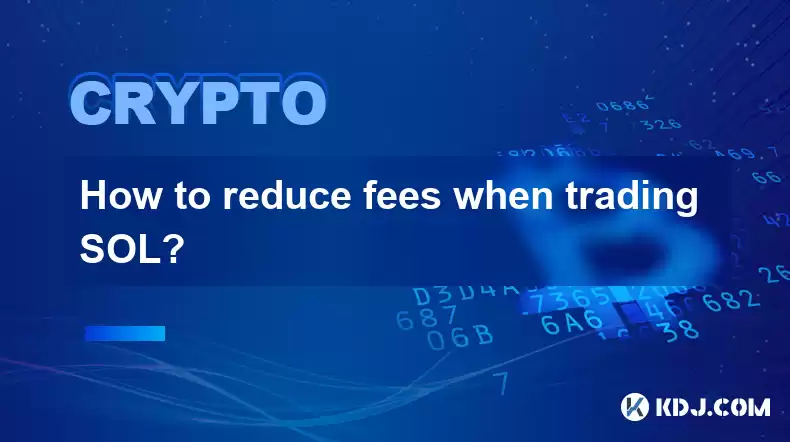
Understanding Solana Transaction Fees
Solana, like other blockchains, charges transaction fees. These fees, paid in SOL, compensate validators for processing and verifying transactions. The fee amount isn't fixed; it fluctuates based on network congestion. High network activity means higher fees, while low activity results in lower fees. Understanding this dynamic is crucial for minimizing your costs. The fees are directly proportional to the complexity of the transaction. Larger, more complex transactions will naturally incur higher fees.
Timing Your Transactions Strategically
One of the most effective ways to reduce SOL transaction fees is to time your trades carefully. Avoid peak trading hours when the network is most congested and fees are highest. Experiment with trading during off-peak hours, often late at night or early in the morning (depending on your time zone and the global distribution of Solana users). This simple strategy can significantly lower your costs. Monitoring network activity through various Solana block explorers can help predict optimal trading times.
Optimizing Transaction Size
The size of your transaction directly impacts the fee. Larger transactions, such as those involving many NFTs or large amounts of SOL, will naturally be more expensive. To minimize fees, try to break down large transactions into smaller, more manageable ones. This is particularly relevant when interacting with decentralized applications (dApps) that allow batch transactions. Always review the estimated fee before confirming a transaction.
Choosing the Right Wallet
Different Solana wallets offer varying levels of fee optimization. Some wallets are more efficient in handling transactions, resulting in lower fees. Research and compare different wallets before committing to one. Look for wallets known for their efficiency and user reviews that mention their fee structures. Experimentation is key; what works best for one user might not be ideal for another.
Utilizing DEX Aggregators
Decentralized exchanges (DEXs) are a common way to trade SOL. However, fees can vary between different DEXs. DEX aggregators can help you find the best rates and potentially lower fees by comparing prices and fees across multiple DEXs simultaneously. They automatically route your trade to the most cost-effective exchange, saving you money on gas fees. This is a passive way to reduce costs without needing to actively monitor multiple platforms.
Batching Transactions
When performing multiple transactions, consider batching them together. Many wallets and dApps support batching, allowing you to combine multiple actions into a single transaction. This reduces the overall number of transactions, leading to lower fees. This is particularly useful when interacting with NFTs or making several trades at once. Always check if your chosen platform supports this feature.
Using a Low-Cost Solana Network
While the mainnet is the most common, some alternative Solana networks might offer lower transaction fees. These alternative networks are often less congested, resulting in cheaper transactions. However, exercise caution when using less established networks, as they may carry higher risks. Thoroughly research any alternative network before using it to trade SOL.
Understanding Transaction Fee Components
Solana transaction fees aren't a single, monolithic cost. They typically consist of several components. Understanding these components – such as the compute unit cost and the network rent – can help you better predict and manage your expenses. This granular understanding will allow for more informed decisions regarding transaction timing and optimization.
Staying Informed About Network Updates
Solana is constantly evolving. Network upgrades and improvements can directly impact transaction fees. Stay informed about these updates through official announcements and community forums. Knowing about upcoming changes can help you plan your trading activities and potentially avoid periods of high congestion and fees. Staying updated is crucial for long-term cost management.
Monitoring Network Congestion
Real-time monitoring of network congestion is vital for fee optimization. Several tools and websites provide data on current network activity. By observing this data, you can identify periods of low congestion and plan your transactions accordingly. This proactive approach is essential for minimizing fees consistently. This requires active monitoring, but the savings can be significant.
Frequently Asked Questions
Q: Are Solana transaction fees fixed?
A: No, Solana transaction fees are dynamic and fluctuate based on network congestion. Higher network activity leads to higher fees, while lower activity results in lower fees.
Q: How can I check the estimated fee before sending a transaction?
A: Most Solana wallets display an estimated transaction fee before you confirm the transaction. Always review this estimate before proceeding.
Q: What are the main components of a Solana transaction fee?
A: Solana transaction fees typically include a compute unit cost and network rent. The exact breakdown might vary slightly depending on the transaction's complexity.
Q: Are there any alternative networks to the Solana mainnet that offer lower fees?
A: Yes, but using alternative networks carries inherent risks. Always thoroughly research any alternative network before using it.
Q: How often do Solana transaction fees change?
A: Solana transaction fees change constantly, reflecting the real-time network congestion. They can fluctuate within minutes.
Q: Can I reduce fees by using a different wallet?
A: Potentially, yes. Different wallets have varying levels of efficiency in handling transactions, which can impact fees. Research and compare wallets to find one that suits your needs.
Q: What is the best time of day to trade SOL to minimize fees?
A: There's no universally "best" time. It depends on global network activity. Monitor network congestion data to identify periods of lower activity.
Q: What are DEX aggregators, and how do they help reduce fees?
A: DEX aggregators compare prices and fees across multiple decentralized exchanges to find the most cost-effective option for your trade.
Q: Is batching transactions always the most efficient way to save on fees?
A: While often helpful, batching isn't always the most efficient solution. It depends on the specific transactions and the platform you're using. Consider the complexity and potential for errors.
Q: How can I stay updated on Solana network changes that might affect transaction fees?
A: Follow official Solana announcements, community forums, and reputable news sources dedicated to the Solana ecosystem.
Disclaimer:info@kdj.com
The information provided is not trading advice. kdj.com does not assume any responsibility for any investments made based on the information provided in this article. Cryptocurrencies are highly volatile and it is highly recommended that you invest with caution after thorough research!
If you believe that the content used on this website infringes your copyright, please contact us immediately (info@kdj.com) and we will delete it promptly.
- Trump, Crypto Vehicle, and WLFI Tokens: A New York Minute on the Latest Buzz
- 2025-08-10 00:30:12
- Wheat Penny Fortune: Unearthing Valuable Coins in Your Pocket Change
- 2025-08-10 00:35:19
- Dogecoin, PENGU, and Remittix: A New York Minute in Crypto
- 2025-08-10 01:10:12
- Ozark AI: Investment Opportunities and Analyst Projections for 2025
- 2025-08-10 01:15:17
- Cryptocurrencies 2025: Top Buys and Market Predictions
- 2025-08-10 01:20:12
- Pendle's Price Jump: Riding the Wave of Market Sentiment
- 2025-08-10 01:25:11
Related knowledge

How to purchase Aragon (ANT)?
Aug 09,2025 at 11:56pm
Understanding Aragon (ANT) and Its PurposeAragon (ANT) is a decentralized governance token that powers the Aragon Network, a platform built on the Eth...

Where can I buy UMA (UMA)?
Aug 07,2025 at 06:42pm
Understanding UMA and Its Role in Decentralized FinanceUMA (Universal Market Access) is an Ethereum-based decentralized finance (DeFi) protocol design...

How to buy Storj (STORJ) tokens?
Aug 09,2025 at 07:28am
Understanding Storj (STORJ) and Its Role in Decentralized StorageStorj is a decentralized cloud storage platform that leverages blockchain technology ...

What is the best app to buy Nano (NANO)?
Aug 09,2025 at 03:35am
Understanding Nano (NANO) and Its Unique FeaturesNano is a feeless, instant cryptocurrency designed for fast peer-to-peer transactions. Unlike many ot...

Where can I purchase Siacoin (SC)?
Aug 08,2025 at 11:14am
Understanding Siacoin (SC) and Its Role in the Sia NetworkSiacoin (SC) is the native cryptocurrency of the Sia decentralized cloud storage platform, a...
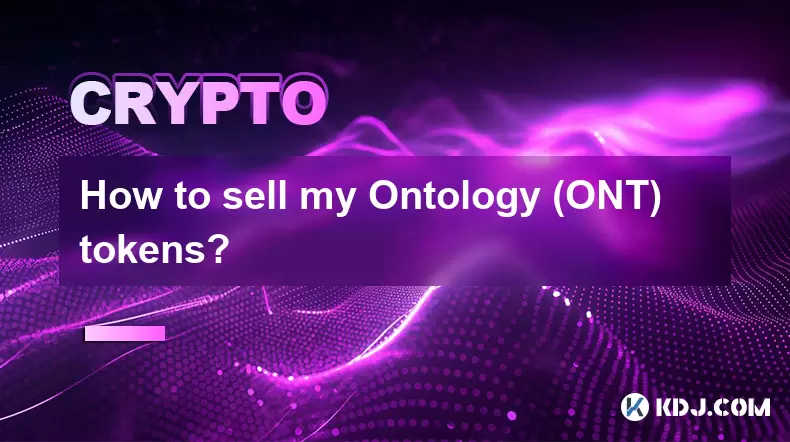
How to sell my Ontology (ONT) tokens?
Aug 09,2025 at 06:08pm
Understanding Ontology (ONT) and Its Trading EcosystemBefore selling your Ontology (ONT) tokens, it's essential to understand the nature of the crypto...

How to purchase Aragon (ANT)?
Aug 09,2025 at 11:56pm
Understanding Aragon (ANT) and Its PurposeAragon (ANT) is a decentralized governance token that powers the Aragon Network, a platform built on the Eth...

Where can I buy UMA (UMA)?
Aug 07,2025 at 06:42pm
Understanding UMA and Its Role in Decentralized FinanceUMA (Universal Market Access) is an Ethereum-based decentralized finance (DeFi) protocol design...

How to buy Storj (STORJ) tokens?
Aug 09,2025 at 07:28am
Understanding Storj (STORJ) and Its Role in Decentralized StorageStorj is a decentralized cloud storage platform that leverages blockchain technology ...

What is the best app to buy Nano (NANO)?
Aug 09,2025 at 03:35am
Understanding Nano (NANO) and Its Unique FeaturesNano is a feeless, instant cryptocurrency designed for fast peer-to-peer transactions. Unlike many ot...

Where can I purchase Siacoin (SC)?
Aug 08,2025 at 11:14am
Understanding Siacoin (SC) and Its Role in the Sia NetworkSiacoin (SC) is the native cryptocurrency of the Sia decentralized cloud storage platform, a...

How to sell my Ontology (ONT) tokens?
Aug 09,2025 at 06:08pm
Understanding Ontology (ONT) and Its Trading EcosystemBefore selling your Ontology (ONT) tokens, it's essential to understand the nature of the crypto...
See all articles





















